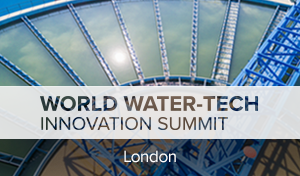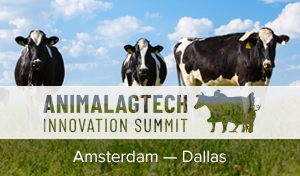Gain insights from James Cooper, Global Director of Water at ARCADIS as he shares an update on recent project developments involving AMP8 targets and supporting water utilities tackle net-zero challenges.
Read the full transcript below:
Waveney Metcalfe:
So hi, hello. I’m Waveney Metcalfe, the partnerships manager for the World Water Tech Innovation Summit, taking place in London this February, the 25th and the 26th. I’m delighted to be joined today by James Cooper, who is the global director of water at Arcadis. Welcome, James.
Jim Cooper:
Thank you.
I’m so excited to be discussing this today.
Waveney Metcalfe:
Yes, absolutely.
It’s great to be speaking with you ahead of the summit, so let’s dive in with these questions.
First of all, how can AI be a game changer for helping the water sector achieve net zero while maintaining operational efficiency?
Jim Cooper:
Oh, that’s a great question. Maybe first we can discuss why AI and why now.
So AI has been around for a while, right?
I’ve personally been using it in the water sector for over a decade now, but today it’s really feels different, right? And I think that’s because we have all the foundational components in place, right? We have this rapid scaling of sensors, increasing data quality, data velocity. And we have that combined with this ease of applying algorithms that we consider AI to address our challenges. So these foundations altogether allow the true capabilities of AI to shine. And we’re seeing some incredible results, which is very exciting.
So we’ve supported the water sector in reducing embedded and operational carbon, prioritising nature based solutions.
Optimising capital investment programs, what’s possible today and the outcomes we’re seeing really demonstrate how AI is unlocking this untapped potential to operate more efficiently with improved overall system resilience as well. All while making leaps forward ahead in net zero ambitions. How do we do that right?
We do it through technology that we have developed at Arcadis such as: What we call the enterprise data analytics platform or EDA, we have something called our universal visual optimiser as well as through strong ecosystem partnerships.
So, we have very strong partnerships with the world’s leading technologies and at Arcadis are really our unique capabilities and innovations focused on improving quality of life.
All across the globe is why clients are seeing us as their sustainable transformation partner for decarbonisation.
Waveney Metcalfe:
Perfect. Thank you.
Developing a road map to measure and report life cycle carbon emissions is clearly a critical challenge for water utilities.
So what are the most significant barriers and how do you think AI can help overcome them?
Jim Cooper:
Of course, I love to talk about barriers and challenges, right? The promise of AI is quite exciting.
But if it was simple, then everyone would be using it all day long.
So there are some challenges there, many opportunities to really move towards net zero emissions depend on many factors and some of those are outside the direct control of utilities which is a clear challenge.
One example is do you have renewable energy available in your region knowing that energy is a significant resource need within the water sector? So when we look at life cycle carbon, we have to consider the full life cycle of components used in the water system, right? So that includes emissions involved in production, end of life disposal.
Today, availability of data is really a major challenge. To get a solid understanding of the scope 3 emissions that they have. So using AI really allows us to gain a better understanding of the life cycle missions of products. And there’s several companies out there now that are developing databases for those emission factors.
AI can really speed up that reporting process, allowing utilities to track their performance in real time, identify the most impactful areas where they can take action. So it’s not just bringing clarity to where the carbon emissions are occurring, but also bringing ideas and how do you take action, right?
So the first step is let’s bring the clarity to the carbon. That’s key in road map and we of course have some tools that we have developed to do that.
We have something called our climate risk nexus which allows for a quick understanding of what are the climate risks.
And how do they impact a utilities’ assets in the future?
And what actions can they take to protect, predict, and protect their systems? Arcadis Enterprise data analytics tool that I mentioned is build around automatically updating investment planning based on changing conditions.
That’s also a pretty significant challenge, right?
Jim Cooper:
Yeah. We can.
We can build great plans. But they’re all based on a certain set of data. And we know the world is constantly changing, right? Our systems are constantly changing so that evolving.
Waveney Metcalfe:
Yes.
Jim Cooper:
Automates bringing in the latest data really allows organizations create plans that will evolve over time rather than locking them into a single set of goals or objectives.
Waveney Metcalfe:
Sounds good. And and with Arcadis obviously doubling its project involvement in AMP 8, can you tell us a bit more about how you’ll support UK utilities in tackling net zero challenges?
Jim Cooper:
Sure, sure.
Great question. Good evening.
So I mentioned you know Arcadis is seen as a global sustainable transformation partner right on the Net Zero journey. I’ve mentioned a couple digital tools right that are out there. Our industry experts have really worked hard to develop those and use those and that’s an example. I’d love to maybe focus in on some results, right.
And even further specific to UK water. So just to give you a couple examples: we’re designing infrastructure today with carbon in clear focus and the design and planning phase. We’re thinking about carbon early.
We’re building infrastructure today that has significantly less carbon impact than any time in the past.
Not only just the design, even in construction, so we’re redefining construction methods using a design for manufacture and assembly approach, and that’s resulted in over 20% carbon savings for the copper mills. Water treatment works design.
Also for Thames Water. Another example is we’re identifying renewable energy opportunities and looking at efficiency and operation. So high efficiency pumping, high efficiency treatment technologies. And with that, we’ve reduced carbon emissions at the canal and River trust, key pumping assets by as much as 40%. So significant opportunities, we’re not talking about you know.
A minimal amount of change. Talking significant change.
In advancing net zero goals, so across the board, we’re really bringing clarity to what’s possible building those road maps to achieve net zero and it’s very exciting to actually see the proven results of when we bring AI to our most pressing challenges.
Waveney Metcalfe:
Yes, I can imagine and I’m excited to hear more about this during your session as well, which for our audience is watching and attending the summit is the decarbonising water quantifying progress towards net zero for the water industry panel, which is currently scheduled for 9:55 on.
The morning of Tuesday the 25th of February at the World Water Tech Innovation Summit. So yeah, looking forward to that.
Thank you so much for your time today, James.
Jim Cooper:
Thank you.
Arcadis is a Gold Sponsor at this year’s World Water-Tech Innovation Summit. Meet James and the Arcadis team at the summit in London and join his session on ‘Decarbonising Water: Quantifying Progress Towards Net-Zero for the Water Industry’ on February 25.

 CLOSE
CLOSE






